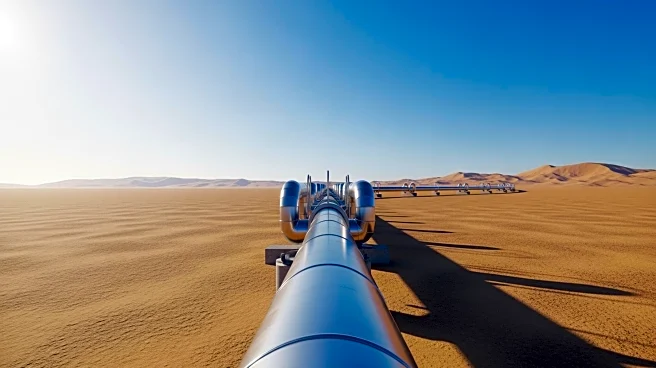What's Happening?
Israel has announced a significant new deal to export natural gas to Egypt through a newly planned pipeline. The Energy and Infrastructure Minister, Eli Cohen, revealed that the pipeline will span approximately 65 kilometers, connecting Ramat Hovav, Ashalim,
and Nitzana. This infrastructure will facilitate the transfer of around six billion cubic meters of natural gas annually to Egypt. The project is valued at two billion shekels and is part of Israel's broader strategy to enhance its energy export capabilities and strengthen regional energy ties.
Why It's Important?
The deal is crucial for Israel as it seeks to expand its energy export market and solidify its position as a key player in the regional energy sector. By exporting natural gas to Egypt, Israel not only diversifies its energy partnerships but also contributes to regional economic integration. This move could potentially lead to increased economic cooperation between the two countries, fostering stability and mutual benefits. For Egypt, the influx of natural gas supports its energy needs and aids in its economic development efforts.
What's Next?
The construction of the pipeline is expected to commence soon, with both countries likely to engage in further negotiations to ensure smooth operations and address any logistical challenges. Stakeholders in the energy sector will be closely monitoring the project's progress, as it could set a precedent for future energy collaborations in the region. Additionally, there may be discussions on expanding the pipeline's capacity or extending its reach to other neighboring countries, further enhancing regional energy security.
Beyond the Headlines
This development highlights the growing importance of energy diplomacy in the Middle East, where countries are increasingly leveraging their natural resources to build strategic alliances. The pipeline deal may also influence geopolitical dynamics, as energy resources often play a pivotal role in shaping international relations. Furthermore, the environmental impact of increased natural gas exports will be a point of consideration, as stakeholders balance economic growth with sustainable practices.
















